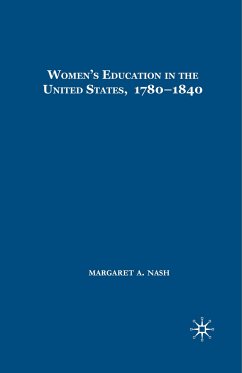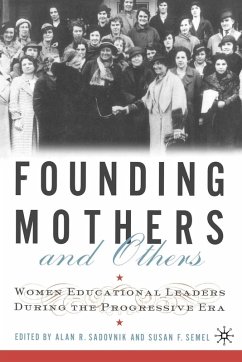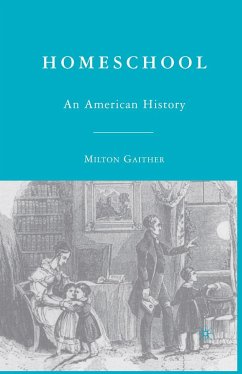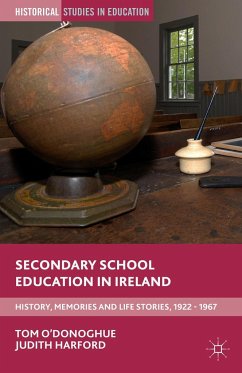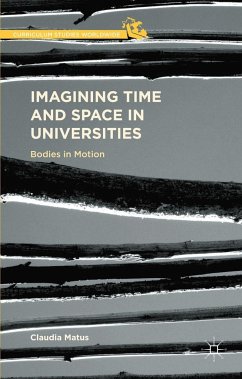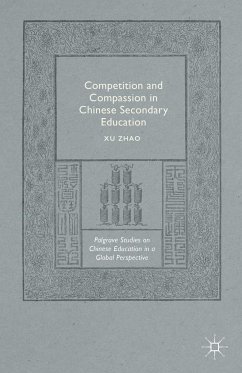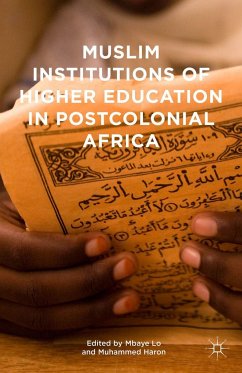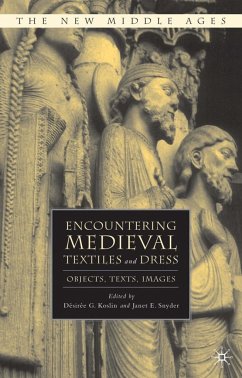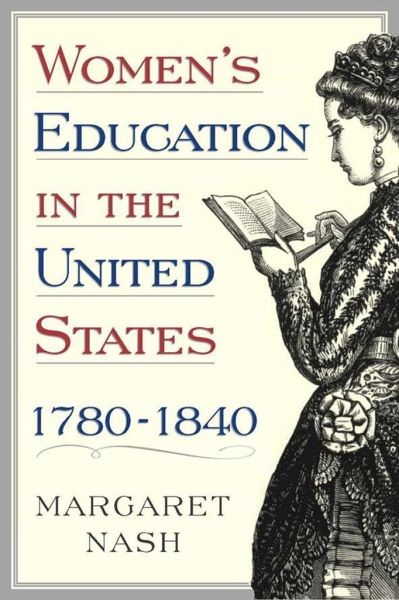
Women's Education in the United States, 1780-1840
Versandkostenfrei!
Versandfertig in über 4 Wochen
78,99 €
inkl. MwSt.
Weitere Ausgaben:

PAYBACK Punkte
39 °P sammeln!
Please note this is a 'Palgrave to Order' title. Stock of this book requires shipment from overseas. It will be delivered to you within 12 weeks. Winner of 2005 American Educational Studies Association (AESA) Critic's Choice Award, this is a groundbreaking from Margaret Nash examining the development of women's education.





